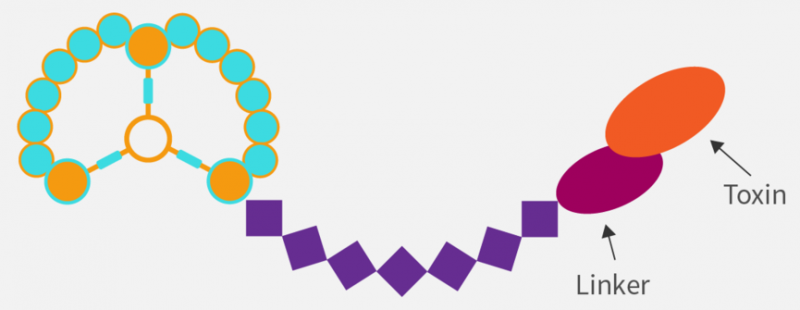AstraZeneca has signed a deal with Bicycle Therapeutics that could exceed €1B. The foundation is bicyclic peptides, which combine the best of antibodies and small molecules. Could Bicycle Drug Conjugates (BDCs) outperform ADCs?
Bicycle Therapeutics is a company in Cambridge founded by one of the top biotech leaders in the UK’s golden triangle. Its unique technology to develop antibody-like bicyclic peptides, hence the company’s name, has lured AstraZeneca into offering over €1B for the development of drug candidates for respiratory, cardiovascular and metabolic diseases.
Bicycles, the bicyclic peptides developed at this young company, are engineered to present high specificity and affinity comparable to that of antibodies. Having a much lower size, around 1.5-2 kDa, they can infiltrate the target area more rapidly and at higher concentrations. They’re also cleared by the kidney, avoiding gastrointestinal and liver toxicity. Yet another advantage is that they can be chemically synthesized and easily manufactured.

Peptides tend to be unpopular because they’re usually less specific than antibodies, although Amcure in Germany is also relying on them to treat cancer. Although the bicyclic peptide technology hasn’t proved itself worthy in the clinic yet, AstraZeneca seems to be attracted by the myriad advantages it offers. For Bicycle Therapeutics, this agreement means an expansion into new disease areas, which were mostly restricted to oncology so far.
Bicycle’s lead compound, BT1718, still in preclinical testing, targets MT1, an antigen present in many solid tumors, including breast, lung, ovarian and colon cancer. The compound is a Bicycle Drug Conjugate (BDC), i.e. a carrier bicyclic peptide linked to a toxin.
This approach seems very similar to that of Antibody-Drug Conjugates (ADCs), which have been hailed as a cost-effective alternative to the hyped-up CAR-T technology. Could BDCs eventually outperform the promising ADCs? We’ll have to wait and see if they work as well in the clinic as the company boasts.
Featured image by Alohaflaminggo/shutterstock.com; figure from Bicycle Therapeutics





